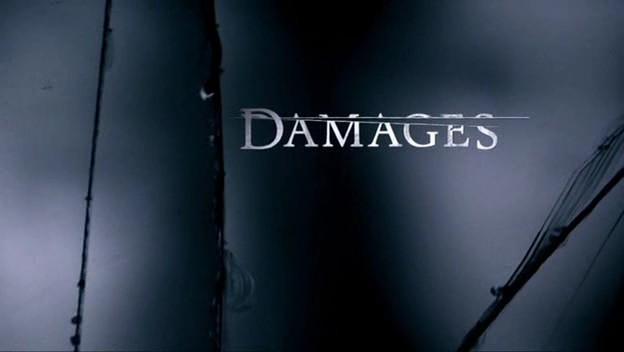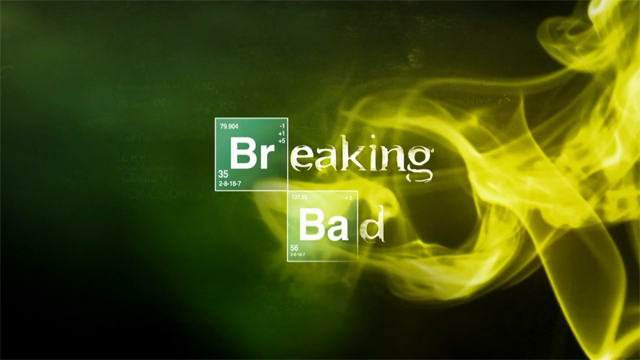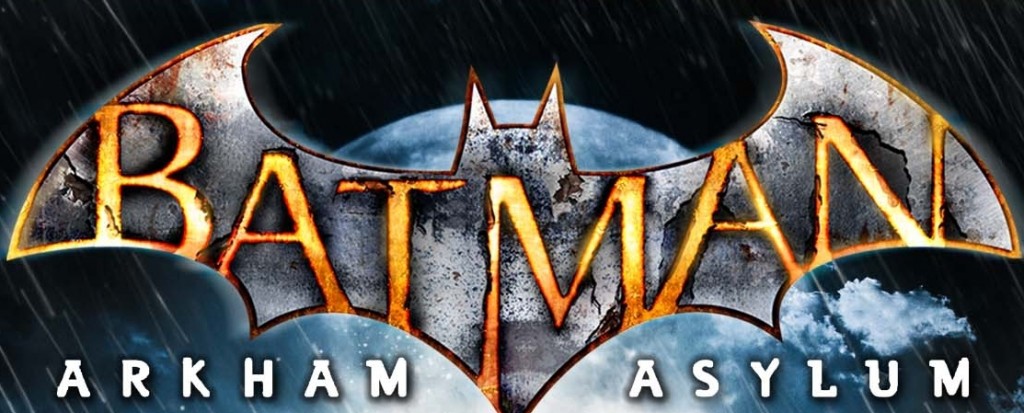Last updated on March 4, 2013
Welcome to Monday Update. Let’s get on with it, shall we?
Damages – Wow. This show is excellent.
Serialized television has gone into some kind of rebirth over the past few years, with series like Lost and 24 reviving such a thing from the dead in the earlier 2000s to great effect. Although some have been great at creating a level of excitement in their plots and maintaining that tension through episode upon episode (24, of course!), other shows start with a great premise and fail to deliver (Lost). Well, if not failing to deliver, than at least confusing the audience as to whether or not they were ever going to answer your questions at all (Lost, again). Some manage to deliver social and religious commentary at the same time as they ratchet political tensions onto a totally different context, yet still relatable to today (the Battlestar Galactica reboot, for example). Whatever the case, a great television show stays entirely consistent with itself. It’s not just a matter of having an interesting plot and setting; interesting characters need to be thrown into the mix to keep the audience entertained and guessing as to the next problem the series presents to the characters. The plot, then, drives great characterization; if you’ve got great characters who are unique and believable personalities, you can easily wrap a solid narrative around the proceedings at hand.
Damages, then, does a great job! Not only does it contain some of the most memorable characters I can remember (Patty Hewes has to be the most complicated personality I’ve encountered in a television story thus far), the presentation gives the viewer more to examine, deduce, and observe. Basically, every season starts with a “flash-forward” sequence, depicting an event that will happen at some point in the future. This is presented without any context, setting, or helpful information. However, what the writers don’t want you to know isn’t revealed in this “flash-forward” at all – most important information is tucked away within the confines of twelve episodes to follow, and I guarantee you will want to watch them.
Furthermore, later episodes present additional information along with the events that, supposedly, inspired the future actions of the personalities involved. Now, most shows would be a straightforward “here is the answer to the pressing question” reveal, but Damages intentionally messes with your perception of the events depicted. Sometimes, a character will, sheerly by presentation, be accused of whatever heinous actions occured in the viewer’s mind because a possible inciting action happens right on screen! I like that the show intentionally deceives; that makes the first season rather interesting, as you don’t expect that kind of approach at all. You’ve been trained to take every show at its own “word”, so to speak, and when they pull the rug from underneath you, it’s surprising and satisfying.
The theme of deception remains consistent throughout in everything, including the protagonist, who evolves from a naive, ambitious lawyer to…well, that would spoil it now, wouldn’t it? Still, as you will learn, every character deceives in this show, whether in word or deed. Everyone’s got an angle, and everyone has something to gain – or lose – from the outcome of a single court case, and the stakes always ratchet themselves up over time. Even something as simple as a conversation can have layers upon layers of meaning because you don’t know what each character knows about the other’s intentions, or what they know about each other. In the end, everyone pays Damages, whether in terms of the law or in their own personal lives – no one escapes unscathed, and the show remains entirely consistent in demonstrating the concequences of such a life.
Seriously, go watch it. If you didn’t think legal dramas could be interesting, put your preconceived notions aside and take a look – you won’t be disappointed. It’s rated TV-MA, though, so definitely for adults only.
Breaking Bad – Seriously, what a weird premise: a school teacher living in Albequeque, New Mexico discovers that he has advanced lung cancer, to the point where he’s going to die in 6 months. Working two jobs (as a car wash cashier/washer as well) to support his family and his disabled teenage son, Walter White decides, with nothing much to lose, to create and sell crystal meth to create a nest egg for his family after he dies. To do this, he enlists the help of a former student (who was terrible at chemistry) familiar with the trade to sell his perfectly made drugs. Along the way, there’s family problems, run-ins with the law, and just about everything else you can imagine working against this secret life.
Totally a show Christians should watch, I gather.
Unlike Damages, which develops its characters through the intensity of their life situations, Breaking Bad incessantly relies upon its characters instead. What causes a person to “break bad”, a uniquely American Southwest term for challenging conventions,defying authority and to skirt the edges of the law, is not as apparent as you would imagine. The show intends to convey, I imagine, the complexities of such a turn to the dark side. The protagonist isn’t so much a person you root for as a person you try to understand, a long and drawn-out character study that as much tries to show us the results of such a life as it does show the constant self-justifications and road to becoming skilled at a socially unacceptable profession.
It’s bizarrely funny, in the darkest way possible; I imagine this is the influence of Vince Gilligan, who wrote for The X-Files. Let’s say the incidnet involving a bathtub and hydrochloric acid made me laugh in shock for all the wrong reasons. I’m not very far into this show, however; it’s a heck of an introduction, though, and I’m interested to see where the series goes beyond the first season. I am very late to the party on this one.
Batman: Arkham Asylum – I think I made my thoughts pretty clear on what I thought about Arkham Asylum, but that was written about half-way through the game. That was the review in a nutshell, but there’s a few things to add to it that I just need to express:
1. Wow, do fistfights get repetitive. Near the end of the game, it’s just a constant stream of the same boring, repetitive fighting. Even the final boss involves more fighting, for goodness sake, and they only add about three enemy types total; even then, it’s just a matter of using one particular action on them over another like a Pavlovian feedback loop. Usually, they just add more big enemies to the mix, the ones that charge at you (like the first boss…or Bane…or the Titan Formula goons…etc.). Best of all, these enemies can charge at you when they are out of your line of sight, meaning you take damage because the game decided they should hit you. The sound they make, unlike in Bayonetta, simply isn’t distinctive enough to hear over the sound of 10 goons trying to beat your face. It’s only intuitive and cool-looking in practice; mostly, I just jammed on the counter button the whole time. It doesn’t require very good timing, either. I can’t stress enough: if you don’t like it at first, you’re not going to like it later.
2. Snipers are cheap and dumb. You can see them from a distance in the “open world” segments; their laser sight is pretty obvious. Yet, if you get within a certain distance, they automatically know you’re there and shoot you to death. There’s no good way to detect when you’re too close or too far; it’s dumb luck or trial and error, and it’s not very good to just randomly take damage because you crossed an invisible line. Same goes for some stealth segments – it’s not clear how close, what direction, how far up or down, or how far enemies can “detect” you. This can lead to many frustrating deaths for all the wrong reasons – not due to my lack of skill, but because the game doesn’t give me the proper indications as to whether they can see me. This is especially egregious on Hard, where one mistake in a stealth section equals instant death – and a death not even your fault, sometimes. Then, you replay it from the beginning until you get it right – again, by no fault of your own in some circumstances. What the heck does that Batman symbol mean? Does it mean they can see farther? How can I know this? It’s more frustrating than it needs to be because the UI fails to give you a good indication of what’s happening!
3. I don’t know whether this is true for the consoles, but the PC version has to be the buggiest, most unstable PC game I’ve ever had the (dis)pleasure of playing. Apparently it had something to do with sound drivers, but I still uninstalled and re-installed them, tried with and without, and still had random crashing. It’s not the easy kind, but the kind that triggers the Blue Screen of Death and messes your computer up a little. Putting it in Windowed mode didn’t help, and it would never do it consistently. If you want to play it, stay away from the PC version at all costs – it’s a terrible, lazy, and badly coded piece of work that desires your end at every moment and will crash at the worst times. I couldn’t wait to uninstall the thing. I imagine Arkham City has the same problems, and I will play it on console, if anything. What a dissapointing game; I’d much rather play Cave Story – at least that game had deaths that were my fault, rather than some jumbled mess of bad camera angles or omniscient enemies.
———————————————————————————————————————————————————————————————————————–
That’s it for this week. More Mana and Seiken Densetsu goodness up next, and a List entry for the first time in two weeks!



